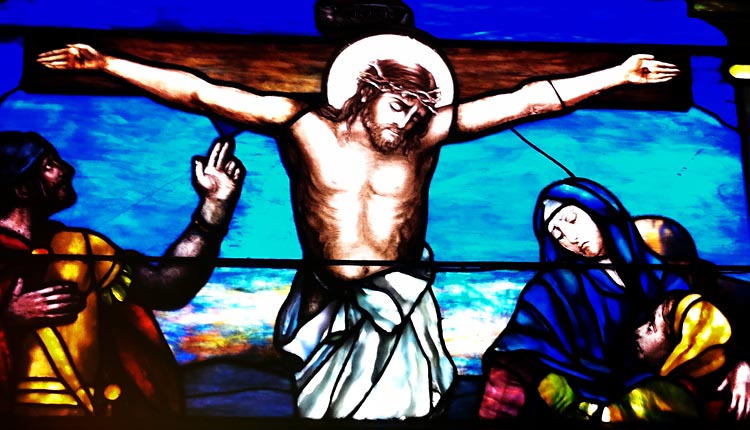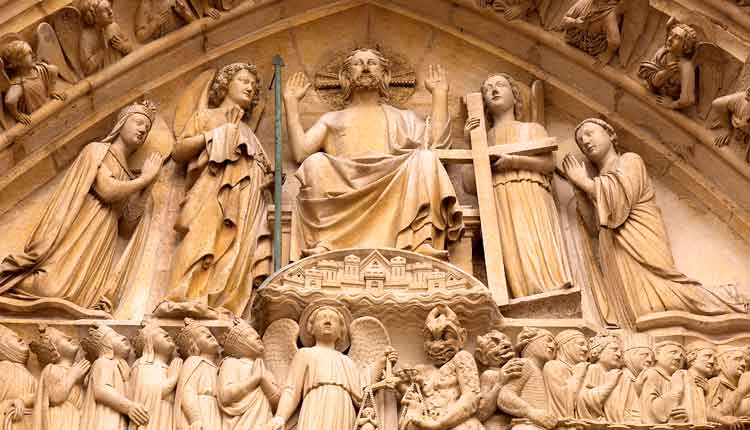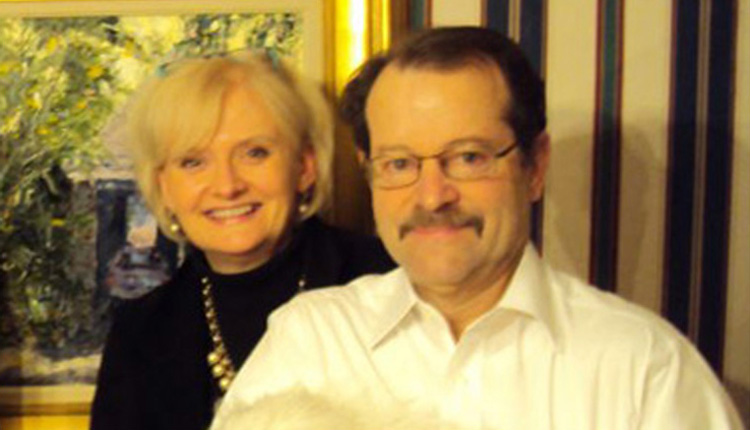36 “But of that day and hour no one knows, not even the angels of heaven, nor the Son, but the Father only. 37 As were the days of Noah, so will be the coming of the Son of man. 38 For as in those days before the flood they were eating and drinking, marrying and giving in marriage, until the day when Noah entered the ark, 39 and they did not know until the flood came and swept them all away, so will be the coming of the Son of man. 40 Then two men will be in the field; one is taken and one is left. 41 Two women will be grinding at the mill; one is taken and one is left. 42 Watch therefore, for you do not know on what day your Lord is coming. 43 But know this, that if the householder had known in what part of the night the thief was coming, he would have watched and would not have let his house be broken into. 44 Therefore you also must be ready; for the Son of man is coming at an hour you do not expect. Matthew 24:36-46
I discovered Charles Dickens’ novel, “Great Expectations” in the 8th grade. We read it as our class novel. Our teacher read it aloud to us, a chapter a day, and the dullest among us welcomed the daily portion, perhaps, because we had great expectations of our own. We were working class kids and we appreciated how Dickens put more value on character, and hard work, and relationships, than on money and social standing. In the 8th grade, Charles Dickens showed us that being a lady took more than fine clothes and good manners, and that some so-called gentlemen were rotten at the core, and completely self-serving. He taught us that the real gentry* were found among plain dressed women with kind hearts, and men who were more polished within than without.
At least one of the bullies in our class, so detested the bullies in “Great Expectations,” and so appreciated the real gentlemen that he changed his ways, at least he quit picking on me!
The old woman known as Miss Habersham particularly fascinated me. My classmates and I first met her through eyes of the book’s hero, Pip. When Pip met Miss Habersham she was wearing a wedding gown of faded, yellowed silk. A bridal veil, still festooned with flowers once fresh, but now dried to dust, covered her head. She wore one shoe, and her stockings were dirty and ragged with wear. Bright jewels sparkled at her neck and hands; but this reader could not help but wonder the last time she took a bath or dressed for bed. We readers also observed that all the clocks in Miss Habersham’s house were stopped at 9:20. It was the hour and minute that her false lover left Miss Habersham standing at the altar, her great expectations forever dashed upon the hard rocks of reality.
Today, when I think of Miss Habersham I am reminded of generation after generation of devout Jews who searched the prophets, and waited for the Messiah.
The Jews of Jesus’ time expected the Messiah to be a conquering hero. They thought he would kick the Romans out of the Promised Land, worship in the temple, and set up a world government in Jerusalem, from which and into which would flow the wealth and the gratitude** of the nations. Of course, they believed in trickle-down economics and trickle-down blessings. They believed they themselves would be the most blessed, but the blessing would also fall upon the Gentile Nations who honored their Messiah-King.
Some Jews are still waiting for the Messiah, and their expectations have remained pretty much the same. Only the names of the players have changed. Today, Orthodox Jews expect the Messiah to defeat the PLO, neutralize Iran, take-out the Taliban, restore the temple in Jerusalem, and set up a world government in that city from which and into which would flow the wealth and gratitude** of the nations.
Devout Jews in every generation have taken solace in the coming of the Messiah in the way that Christians have taken solace in “going to heaven,” or in “the 2nd Advent of Jesus Christ,” which we regard as two sides of the same coin.
- People are hungry, and the devout say, “When the Messiah comes, there will be a banquet for all.”
- People are persecuted, and driven from their homes, and the devout say, “When the Messiah comes, all the world will welcome us, and bless us, for they will want the Messiah’s approval.”
- People are forced to choose between what is good and what is bad, and sometimes between two bad options. In the movie “Sophie’s Choice” the Nazis force a mother to choose which of her two children will live, and which will die. The devout say, “When the Messiah comes, people will no longer choose between good and bad, but between what is good and what is better!”
Many devout Jews believe that, “When the Messiah comes,” then at last, all the wrongs of the world will be righted, and all the promises of it fulfilled. *** In that Christians and Jews agree.
And when will the Messiah come? That is the question about which Jewish scholars have long disagreed.
- Some rabbis have said that the Messiah will come when all of Israel properly observes a single Sabbath.
- Some rabbis have said that the Messiah will come if all of Israel repents for a single day.
- Some rabbis have said that the Messiah will come when a generation of children arise that are totally disrespectful towards their parents and elders. Naturally, they believe the Messiah will vindicate the parents!
- Some rabbis have said that the Messiah will come to a generation that loses all hope. At her darkest hour, Israel’s Messiah will come.
I am not a Jew, but I tremble to think that any hour could be darker for God’s Chosen People than that hour which gave birth to the Nazi Holocaust!
Not all the Jews of history spent a lifetime waiting for the Messiah. There were a great many Jews who belong to the generation that lived in the land of Judea during the high priesthood of Caiaphas, when Pontius Pilate was governor of Judea, and Tiberius Caesar ruled in Rome who believed that the Messiah had come. They thought that Jesus of Nazareth was a different kind of messiah, but they did believe that he was, in the ironic words of Pilate, “the King of the Jews.” (Mark 15:26, etc.) Indeed, they believed him to be the King of kings, and the Lord of lords, but they continued to insist, as he had insisted, that his kingdom was not of this world. (John 18:36) Furthermore, they believed that Jesus came, not to be served, but to serve, and to give his life as a ransom for many. (Mark 10:45) They believed he was both the long awaited Messiah of God, and the Suffering Servant of God who “bore our sins in his body, on the tree.” (1st Peter 2:24) They believed that Jesus died for their sins (1st Corinthians 15:3) , and not for theirs only, but for the sins of the whole world. (John 1:29) Of course they did not think that the death of Jesus was the end of His story. They believed that, on the third day, God raised Jesus from death, and that Jesus showed himself alive to many (1st Corinthians 15:3-11), and that his appearances ceased only when he ascended to the Father, to send the Holy Spirit to the church, and to take his rightful place of authority at the Right Hand of the Majesty on High, from which he will come again, to judge both the living and the dead. (Acts 1:6-11)
Because this generation—and those that immediately followed, believed that Jesus was designated “the Son of God” or “Messiah,” in power through his resurrection from the dead (Romans 1:16), they treasured up his words and set them on paper. (Luke 1:1-4, etc.) The passage we read this morning is a part of that treasury. In it, Jesus tells his disciples what to expect and what not to expect about his return.
1. He tells them that they should not expect to fix the day of his coming on a calendar.
He says, “Of that day and hour, no man knows, not even the angels of heaven, nor the Son, but the Father only.”
I don’t know about you, but I am always embarrassed when a group of Christians fix the date of Christ coming and assemble to meet him, as so many have done in the past. I am embarrassed because they make our faith appear more foolish to the world than it already is. That said, I myself am willing to be “a fool for Christ,” with regard to fact of Christ’s Second Advent. If we believe that Jesus Christ really is who we believe him to be, then he who appeared for the first time on the plane of human history in humility and hiddenness, his true identity visible only to a select few witnesses, and to the eyes of faith, must of necessity, appear a second time, in power and in glory, at the juncture of time and eternity, his true identity made known to faith and unbelief alike.
This is the commonly held faith of the church in all generations. The 2nd Advent of Jesus Christ in Glory is our “blessed hope.” (Titus 2:13)
2. Jesus tells them that he will come at a time when he is least expected.
He refers to the story of the flood, and says that when the flood came people were eating, and drinking, and marrying, and giving in marriage, until Noah entered the Ark. He said that the Son of Man will also come at an hour we do not expect. Here, we need to note two things. First, we need to note that in the gospels, Jesus’ favorite name for himself is not Son of God, as some might expect, but “Son of Man. Most people think it is a reference to Daniel 7:11-14, in which one like a Son of Man receives the kingdom from the Ancient of Days, just as Jesus expects to receive the Kingdom from his Father, and then rules forever and ever. He does not take the kingdom from God. He receives it as a gift from God. The kingdom is God’s gift to Jesus because he is worthy! When I hear the name “Son of Man,” and remember the passage from Daniel 7, I can also hear already the accolades of Revelation, one of which describes Jesus as “the Son of Man,” who is like the sun shining in his strength! Second, we need to note that it sounds almost as if Jesus is refuting all the teaching of the many generations of rabbis. He will not necessarily come when we keep a perfect Sabbath, or go a single day without sin. He will not necessarily come when a whole generation rejects their parents, or when the world enters its darkest hour. He will come in God’s own time, and God is not bound to tell us when he will come.
3. Jesus says that when the Son of Man comes there will be a division.
Two men are in the field. One is taken, one is left. Two women are grinding at the wheel. One is taken, the other is left. I do not think that Jesus was a Universalist. How can he be? Jesus knows that God does not force us to follow God’s way in the World. God gives us free will. Some will choose to live according to God’s Way, as Jesus has. In choosing to submit to God, and to seek God’s forgiveness for our sins, and to love others as we love ourselves, and to wait upon the hope of God, we choose the way of Jesus, who said, “I am the Way, the Truth and the Life.” Others reject this way. In this passage, Jesus says God will leave them as they are. They are not taken. They are left to wonder at what has happened, and, no doubt, to feel left out. Uninvited. Rejected in the choosing. AARG. People ask me if I believe in hell. I do. Some people are already in it. Personally, I think that the worst kind of hell would be to be left on my own, without God and without hope in the world (Ephesians 2:12), with nothing to help me, but that feeble strength which I have within myself, or that which I can muster from other human beings as fallible as I. Whether in life or in death, I want something more. I want to be taken. I want to be a part of God’s harvest. Interestingly, from time to time, the church has been called the gathering, the harvest. I take solace in the fact that I am a part of a body of believers called the church. What did the hymnist say:
There Divine affection Lives,
There the Lord his blessing gives;
There they live as those above;
One in labor and in love.
4. Jesus says that we are to be watchful.
In the gospels, whenever the coming of Christ is mentioned, we are exhorted to be watchful. What does that mean? One man said, “Well, it means that we should live every day as if it would be our last.”
I think he is probably right. So, what would you do, if you knew that tomorrow would be your last? Here in my list.
First, I would want to seek the forgiveness of those I had wronged, and to make restitution to anyone to whom restitution is due. I would want to pay my bills, for I would not want to leave my family any debts. So, too, if I owed anything on my pledge, I would want to pay that. I do not want to stand at heaven’s gate, still owing debts on earth.
Second, I would want to spend time with the people I love. In the final analysis the only thing that we can take with us as we leave this world is the love that we have shared with our family and friends, which are the family that we choose. The real winners in this life are not the people who finish with the most toys, but those who leave this world with the love and respect of those who follow after.
Third, I would want to go about my work. Jesus said, “My food is to do the will of him who sent me, and to finish his work.” (John 4:34) Some years ago, I went to see an accountant who finished all the tax returns of his clients, and then, laid himself down to die. On another occasion, I carried plans for a 23rank pipe organ from the hands of a dying man, already in hospital, and put them into the hands of a half-dozen men whom he had assembled for the purpose of completing it. Even if retired, I would want to work at something the last day of my life. And, if I should die on a Sunday, I would want to preach as did the great Scottish divine, Robert McMurray M’Cheyne, “a dying man to dying men.”
Finally, if I lived to finish my work for the day, I would want to play a little. I once knew a man who was dying of cancer. For many weeks he had been in bed, in the care of Hospice, then, one day, he summoned the strength to get out of bed, and he went to his garage and cranked his motorcycle, and took it out on the backroads of Forsyth County, riding as long as he was able. Then he came home, and within days, he was dead. If I could choose, I would not want to die in bed. I would rather dielike Chip Prosser, the Wake Forrest Coach who died in his office after finishing his daily run. I hope to have a little fun, even on the day that I die. I believe that God wants us to enjoy the good things in life. Bonhoeffer says that to despise the creation, and all the joy it affords, is to despise the Creator. The Westminster Catechism declares, “The chief end of man is to love God, and to enjoy him forever.”
Certainly, on my last day, I would want to listen to a little music. I once asked Elayne what she would put on my headstone if she outlived me. She did not miss a beat, but responded, “Roll over, Beethoven!” I said, “Why that?!?” She said, “Well, because you are a little bit classical, and a little bit rock-n-roll.” I would not mind hearing, “Fanfare for a Common Man,” or “the adagio from Mozart’s Clarinet Concerto,” but I wouldn’t mind a little “Respect,” and maybe a little, “I Heard it through the Grapevine.” I would certainly want to hear the hymns from the Moravian Service of Holy Communion, as I never feel closer to God as when I serve that service.
I believe that what Jesus gives us here is the simplicity that is on the far side of complexity. Some people make the study of his 2nd Advent, and faith itself, complicated. He simplifies it. He says, “Watch—for you don’t know the day and hour.” In other words, live even today as if it was your last.
Finis
Notes:
*Writing after the industrial revolution, Dickens ignored the English nobility. His upper class characters were those who had “made their fortunes” in business and industry. “Great Expectations” would have been equally well placed in 19th century America.
**To their credit the ancient Jews expected a kinder, gentler ruler, one that all the nations would admire and respect.
*** Of course, like some Christians, some Jews have learned what we hope is a godly pragmatism. Perhaps you have seen the play “Fiddler on the Roof.” It is set in Russia in the time between the Communist Revolution, and the 2nd World War. In one scene the Jews of Russia are being driven from their homes and communities. Everyone is in a panic, running hither and yon. A young man, still full of hope, approaches his rabbi, and says, “Rabbi, we’ve been waiting for the Messiah all our lives. Wouldn’t this be a good time for him to come?” The rabbi answers, “Certainly, my son. But we’ll have to wait for him someplace else. Meanwhile, let us start packing.”











